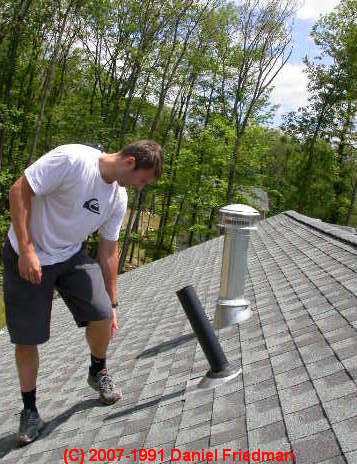Trenchless drain repair under your slab costs about a 150 per linear foot and takes about two days to do as opposed to two weeks for excavation for drain repair under the slab.
How to repair a broken drainage on the sound roofing.
Where a patch job is required clean away any debris from the repair site with a wire brush and water.
Remove the gutters and roof flashing if needed.
Depending on how the roofs join you may have to cut a slot to work it in far enough.
If the main vent is blocked the water will back up.
Begin by removing the shingles down to the wood sheathing and slip a strip of adhesive ice and water barrier available where roofing repair products are sold under the soffit main roof joint.
The pipe will amplify the flushing noise just like a speaker and you will be able to clearly hear the flushing sound while on the roof.
The main parts you need to inspect are the.
This video will walk through the process of repairing broken.
In order to give yourself clear access to the eaves you may first need to detach the drainage structures covering them.
Mark the cutting points on the old drains about 1 2 in.
Spread roofing cement over the hole in the roof drain and the surrounding area before leaving it to dry.
Repairing broken roofing tile instead of replacing means that the pieces can be glued together.
If you ve noticed water dripping or spots on the ceiling you may have a cracked roof drain.
Inspect the roof drain parts.
If you can separate the cleanout from the ac or block the path of water back to the ac drain pan you can insert the cut off garden hose into the drain line as shown in this video and just gush.
Unscrew the gutters at the brackets then pull out the nails holding them in place and lower them down safely.
Locate an exit pipe on the side of the building.
When repairing a section of pipe in an existing run don t try to cement solvent weld all the new couplings.
Dry it thoroughly and prepare the surface by rubbing it with coarse sandpaper.
You can t flex them enough to slide on that last fitting and get it to seat fully.
Most drain systems use rigid pipes fairly large in diameter.
Larger than the replacement.
Even small hairline cracks can lead to water issues.










